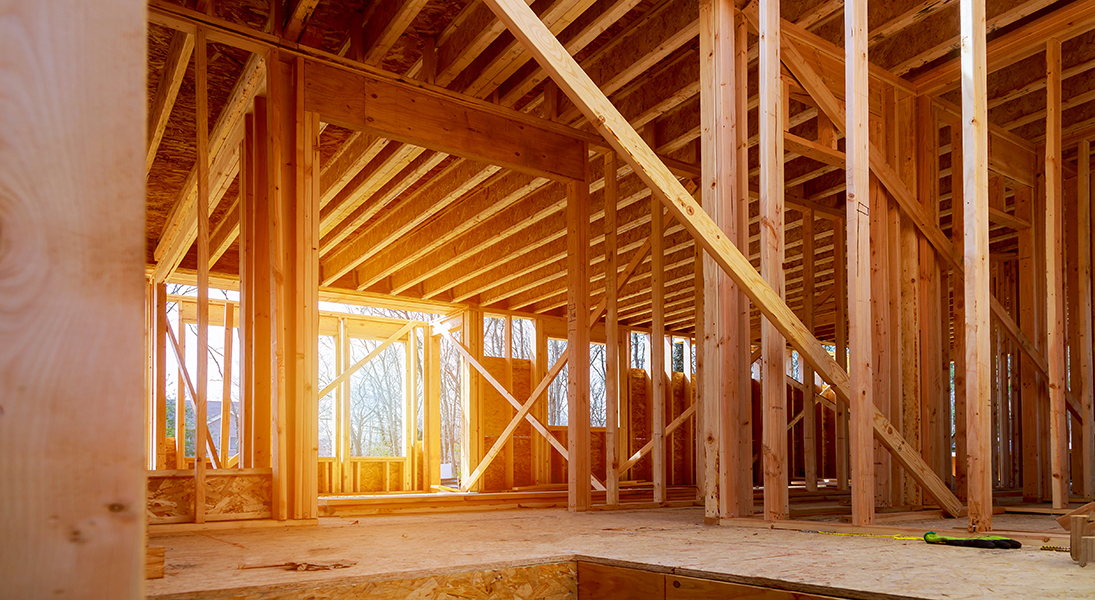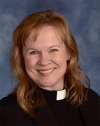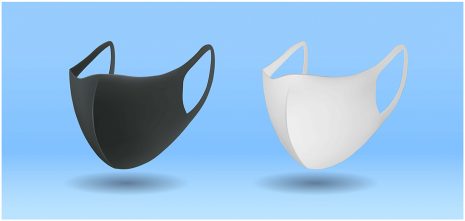My husband left the bathtub spigot running one day in late March. We had just hunkered down in quarantine, our high school student daughter and college student son shifting to online classes, my teacher husband uploading all his lectures to his school’s websites, and I rearranging my pastoral work as our church building locked its doors. Life was finally settling down in this month that seemed never to end. But then, as my husband read the latest COVID-19 news on his phone, he forgot the water was running until a half hour had passed—a stealthy, wet destroyer.
After assessing the damage, mopping up what water we could, deploying high-powered fans and resorting to a steam cleaner, we sought professional help. Over the course of one very long day, a team of masked workers pulled out carpet, walls, floors, tiles, ceilings and the bathroom vanity. Who knew bathwater could do so much damage?
We filed an insurance claim and decided not to have contractors rebuild until after this virus is no longer a threat. So we have lived in this state of disrepair for four months. Luckily, the room where I record home worship services was untouched by water damage. We have a guest bedroom where my collegiate son sleeps and I conduct Zoom meetings. We were lucky to still have our kitchen intact (minus the ceiling) and two functioning bathrooms. We would most definitely survive this.
As the months have passed, I’ve felt the exhaustion that afflicts many clergy. Preaching to a phone is not nearly as rewarding as preaching to people, and Zoom meetings are not as invigorating as classes at the church. I have heard accounts of COVID-19 suffering, isolation and death. I reeled at the murders of George Floyd, Ahmaud Arbery, Breonna Taylor and others. I have heard the trauma of Black children of God who cry out under the burden of systemic racism and violence. I have listened to my police officer parishioners wonder how to serve their communities when they are frightened to go to work.
Like many in our nation, I have felt helpless to do my job of sitting by my people, at their bedsides and in coffee shops. I have felt helpless to make much of a difference or accompany people in any meaningful way. I have wondered what it means to be a pastor at this time, doing things I was never trained to do, not being able to do what I was taught. But here I was, stuck inside my bizarrely incomplete house.
I dwell in God in a permanent state of not-quite-finished.
Lately, my house has become a meaningful symbol to me, a metaphor of living in God. In the psalms, we are told that we dwell in God. God’s kingdom is within us and around us, and God is the very home in which we live. Stuck at home in quarantine, we cannot escape this deeper imagery.
In the past few months, I have cleaned and decluttered, straightened and scoured. I have followed my minimalist tendencies and discarded old items while also accepting Instacart orders and refilling my pantry. My home is now classroom, lecture hall, sanctuary and protector from a virus. Yet it’s missing ceilings, floors, walls and built-in furnishings and fixtures. No matter what I clean, rearrange, organize or minimize, the exposed beams, concrete floors and open spaces where walls should be remind me that my house is not done. I am not done. I dwell in God in a permanent state of not-quite-finished.
That is how it is and, in fact, how it must be. This virus is not done yet, and it might not be for a very long time. Even more, racism has been part of our country for 400 years, and though we can, will and must work for a better world free of racism and white supremacy, that will not happen in full overnight. The beams are exposed. The floor is concrete. The walls are missing. And that is our home—the state we all live in as we dwell beautifully in God.
In Lutheran Christianity, we say the kingdom is “already/not yet.” The kingdom is here in full and, at the same time, not yet realized. That is how it feels these days to live in my home, my community, my nation and my world. This state of incompleteness is the resting state we all live in and the state we will always live in, this side of heaven. We might want the drywall up, the tiles laid, the paint dry. But then there would be no work left for us. And Scripture makes clear that we dwell in God and that there is still much work to be done.










